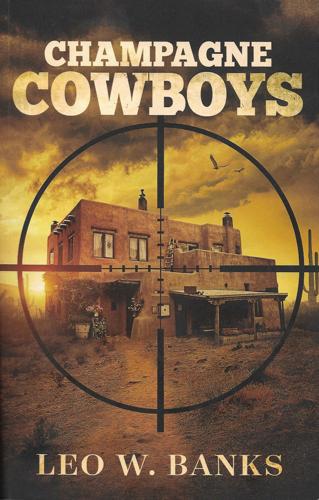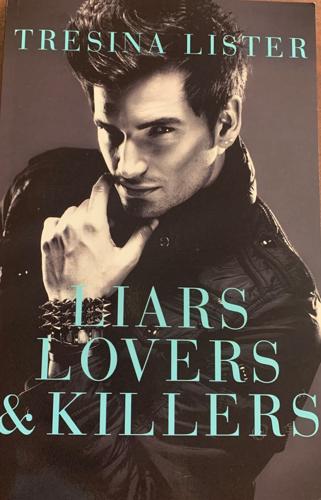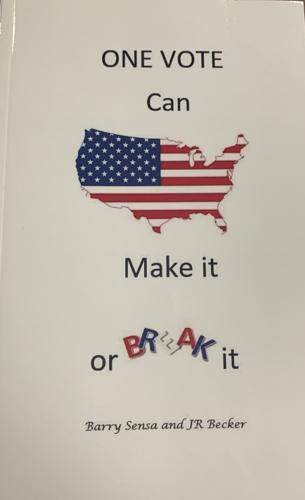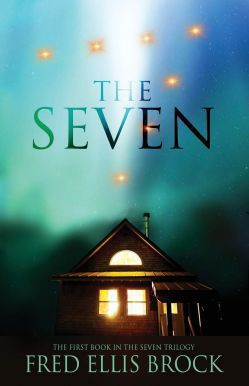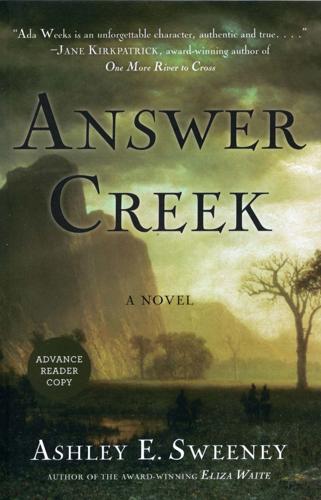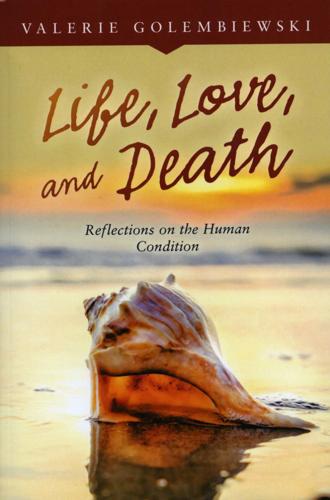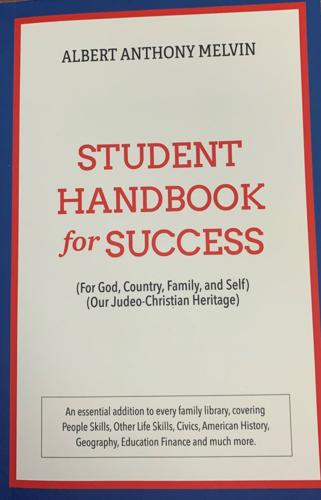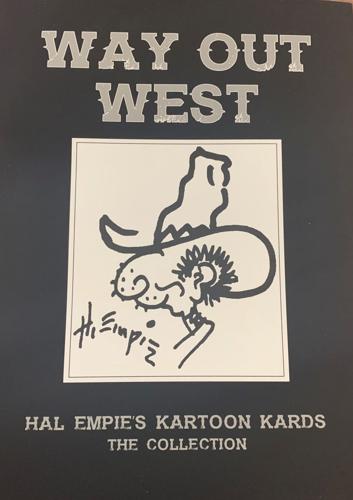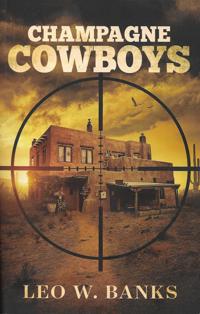“Champagne Cowboys” by Leo W. Banks
Brash Books. $18.99, Kindle $5.99
Fans of fast-paced, grit-in-your-eye desert noir will be glad that Prospero “Whip” Stark is open for business again at the Double Wide Trailer Park, and his business involves mayhem in Tucson. The former major league pitcher is chasing down a lead in the Catalina Foothills murder of two friends, having been tipped off that Marine veteran Ash Sterling is ready to spill what he knows. But Whip arrives just after the nick of time to find Sterling shot dead. Who will be targeted next? The corpses pile up as Whip’s quest for justice leads him to the Champagne Cowboys, a group more sinister than their bubbly name implies. This is a second outing for Whip Stark, who first appeared in author Leo Banks’s debut mystery “Double Wide,” a dual Spur Award-winner and True West Magazine pick for Crime Novel of the Year. This sequel does not disappoint. Banks mixes non-stop action with wryly humorous dialog and populates his book with quirky, appealing characters. A bonus for Old Pueblo readers is Banks’s artful descriptions of Tucson, from the panhandlers on Speedway to the bar scene at the hipster Hotel Congress, “where the chronically alienated gather to compare piercings.” It’s a book that grabs you on page one and holds on tight.
— Helene Woodhams
“Liars, Lovers & Killers” by Tresina Lister
Published by the Author. $14.95; Kindle $7.95
From wide-eyed innocents to femme fatales, and from Marlboro Men to surfer dudes, Tucson author Tresina Lister offers snapshots of diverse and diverting interior lives in this collection of 21 vignettes and short stories. Driven by lust or consumed by loathing, fatally attracted or merely distracted, her characters are ruled by passion, and they put the “animal” in animal magnetism. In one story, a budding romance in the Florida Keys is nearly derailed by hell-bent jet-ski bullies; in another, a group of neighbors hatch a nefarious plot to take down a nearby resident and her annoying dog. Romantics be warned: love can be illusory, but revenge is sweet and malice is forever, as the author demonstrates in a variety of dark and clever ways.
— Helene Woodhams
“One Vote Can Make It or Break It” by Barry Sensa and J.R. Becker
Published by the authors. $9.99, PDF version $5.99. Available from Lulu.com/shop or txazconnection.com
Your vote only counts if you use it: sadly, many people don’t. To help remedy that, Sensa, a statistical researcher, teamed up with Becker, who blogs about current issues, to produce this one-stop reference for the 2020 voting process. In easy-to-understand and non-partisan language, the two explain the perils of voter apathy and the impact of every election, local to national, with job descriptions of elected officials — because it’s in our best interest to understand the positions we’re voting to fill. Murky areas — like primaries vs. caucuses and the function of the electoral college — are elucidated as are voting requirements, which vary from state to state. Of particular interest are chapters on political promises (and how to interpret them) and partisan myth-busting (liberals and conservatives aren’t necessarily polar opposites). To underscore the message that every vote counts the authors highlight elections that were decided by one vote (beginning with Thomas Jefferson in 1800) and statistics from the 2018 midterms, when more than half of registered voters took a pass. Jam-packed with important information, this slender volume includes a glossary and an impressive bibliography, and is an invaluable guide to making good decisions at the polls.
— Helene Woodhams
“The Seven” by Fred Ellis Brock
Wyatt-MacKenzie Publishing. $15.95; Kindle $6.99
Is the idea of extra-terrestrial visits really as far-fetched as we think? In this debut novel, Fred Ellis Brock speculates on just how far government intelligence might go to keep an unsuspecting populace in the dark. Journalist and best-selling author Bill Sanders didn’t reach the top of his profession by being gullible, so he’s understandably skeptical when a boyhood friend claims his daughter has been abducted by aliens. But old loyalties run deep, so Bill reluctantly agrees to check it out — digging up the facts is his specialty, after all — and to his surprise they simply don’t add up. Even more disturbingly, people connected with his investigation are inexplicably turning up dead.
In a lively plot that gallops across a landscape of disinformation and treachery, Brock’s hero peels away layers of artifice to arrive at the shocking heart of the intrigue. This is the first volume of a planned trilogy featuring Bill Sanders and his close encounters with “The Seven.” Like his protagonist, Green Valley resident Brock is a journalist who has worked for major dailies including the Wall Street Journal, the Houston Chronicle and The New York Times, and has authored best-selling books on financial planning. Brock teaches journalism at the University of Arizona.
— Helene Woodhams
“Answer Creek” by Ashley E. Sweeney
She Writes Press. $16.95 paperback; $9.95 e-book
A challenge to any writer of historical fiction — particularly related to as notorious an event as the 1846-47 Donner Party’s descent into cannibalism — would be to engage reader sympathy and sustain suspense: the reader knows well what’s in store.
Tucson writer Ashley E. Sweeney meets that challenge admirably in “Answer Creek.” Into a historic group of 10 families and 19 single travelers headed to California by wagon train, Sweeney places fictional 19-year-old Ada Weeks, adopted daughter of Augustus and Inger Vick of Indiana. Ada has already suffered personal tragedy, and when an accident kills the Vicks, she accepts work from another family. Her strength, sense of responsibility, and values tested, Ada continues the 2,000-mile walk into the inevitable horror.
Scrupulous research went into this novel. Sweeney’s descriptions of the Oregon-California Trail geography and weather are full and vivid; details of wagons and gear are convincing. In the end, she elicits a measure of compassion for the participants in this doomed venture, and tells a compelling story.
— Christine Wald-Hopkins
“Life, Love, and Death: Reflections on the Human Condition” by Valerie Golembiewski
LifeRich Publishing. $12.99 paperback
Written for “readers (who) would be interested in the perspective of an older writer who has experienced life at various stages of her life,” this book by Tucsonan Valerie Golembiewski covers a variety of topics in a variety of genres. It has short fictional pieces about domestic life — difficult marriages, parent-child relations, the death of a partner — some of them interrelated. It has contemporary miracles — one from the perspective of a guardian angel — and re-imagined scenes from the life of Jesus Christ. It has one short essay, “Mother’s Care,” about raising eight children, which seems to draw directly from the writer’s life; a series of rhyming poems, and a heartfelt memorial tribute to Tucson artist Jean A. Burgess.
— Christine Wald-Hopkins
“Student Handbook for Success (For God, Country, Family, and Self) (Our Judeo-Christian Heritage)” by Albert Anthony Melvin
Planeta Books, LLC. $25 paperback; $4.99 e-book
You get the impression reading this handbook by conservative Catholic, former state senator, retired Navy Reserves captain, Eagle Scout and college instructor Albert Anthony Melvin, that he himself has ordered his life by structured guidelines. “The Student Handbook for Success” written “for young people in the United States” to achieve “success in everyday life” offers advice through multiple structures. It covers interpersonal and life skills, and financial, civic, educational, and job skills. In addition, because Melvin finds 21st century education — particularly public education — deficient, it also includes chapters on geography, U.S. government and history; book recommendations, and advice on affording and selecting colleges.
Melvin drew from a variety of sources. He quotes extensively from such historic figures as Thomas Jefferson and Benjamin Franklin who developed rules to live by, and he presents guidelines for behavior from reputable organizations. Much of his advice is sound. Were it not for a diatribe against liberalism threaded through the book (“… the Left harms everything it touches….”), it might have proved useful for a broader readership than “like-minded people” on the “front lines of Good vs. Evil.”
— Christine Wald-Hopkins
“Way Out West: Hal Empie’s Kartoon Kards: The Collection” by Ann Empie Groves
The Artist’s Daughter Publishing. $45
Skulking buzzards. Patched-panted prospectors. Streaking jackrabbits, recalcitrant mules, bow-legged cowpokes, clueless tenderfoots, buckin’ horses, sly coyotes, full-uddered cows; and rattlers, saguaros, and prickly pear: these were all stuff of Hal Empie’s historic Kartoon Kards sketches. Add to those a brief, usually hokey, sometimes groan-worthy message (“GREETINGS from WRANGLER’S ROOST—’ ‘Out Where Th’ Worst Begins’”), and for 5 cents, you had yourself a postcard to memorialize your trip Out West. “Way Out West” is a delightful collection of photos of 264 cartoon postcards created by Duncan, Arizona, pharmacist/ artist Hal Empie from the 1930s to the 60s. Bored by the staid Main Street Photos postcards offered in his drugstore during the Depression, Empie (1909-2002) realized there could be a lucrative alternative. So he “did a fellow running across the desert with a rattlesnake hooked to the seat of his pants, and labeled it ‘Duncan, Arizona, Just Rattlin’ Through.’” The postcards were a hit, and he began a prolific production, drawing them between serving customers in his drugstore. Empie’s cartoons would eventually appear in Arizona Highways and 27 Southwest newspapers until he gave them up for his first love, oil painting.
“Way Out West” represents a sort of social history of the time — not, it must be said — without some period cultural biases. The book is the fruit of years of collecting by Empie’s daughter, Ann Empie Groves, who runs the Hal Empie Gallery in Tubac. Her commentary personalizes the collection and contributes a taste of the liveliness and wit her family clearly shared.
— Christine Wald-Hopkins


